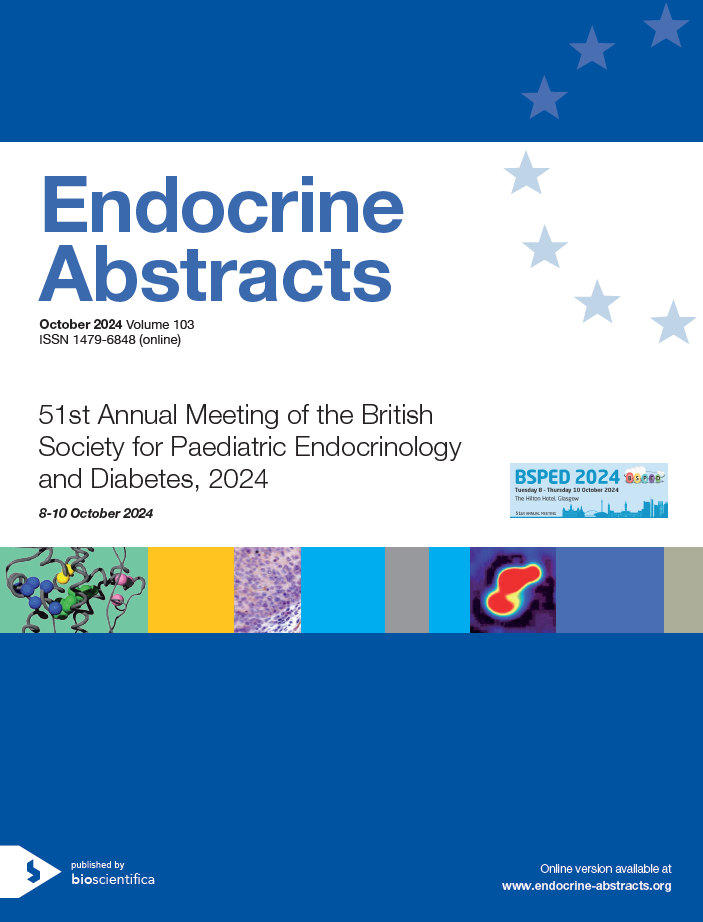
51st Annual Meeting of the British Society for Paediatric Endocrinology and Diabetes
Glasgow,
UK
08 Oct 2024 - 10 Oct 2024

Poster Presentations
Diabetes 3
ea0103p30 | Diabetes 3 | BSPED2024
Understanding staff views on current variation in provision of diabetes technology for children and young people with diabetes: a qualitative service evaluation
Cuprinskaite Juste , Candler Toby , Semple Claire
ea0103p31 | Diabetes 3 | BSPED2024
’Hybrid closed loop pathway’– a quality improvement project utilising existing resources whilst meeting the demands of a merged service
ea0103p32 | Diabetes 3 | BSPED2024
‘Organisational change’– a quality improvement project to utilise existing budget to provide a nursing service and equitable care across 2 sites
Swindell Rachel , Smith Julie , Bridge Jo
ea0103p33 | Diabetes 3 | BSPED2024
The digibete patient support app; implementation and evaluation outcomes of the scottish pilot
Bayman Elizabeth , Brogan Michelle , Conway Nicholas , Alexander Helen , Grosser Sabine , Julian Maddie
ea0103p34 | Diabetes 3 | BSPED2024
Onboarding and beyond - the quantitative and qualitative benefits of skill mix in a diabetes team
ea0103p35 | Diabetes 3 | BSPED2024
Looping forward in diabetes
Costello Natalie , Dixon Jenny , Stewart Caroline
ea0103p36 | Diabetes 3 | BSPED2024
Use of a hybrid closed loop system in a child with end stage renal disease, GAD positive diabetes and recurrent pancreatitis – a game changer!
Subramanian Sharan , Birchmore Nicola , Cheng Lauren , Peters Catherine
ea0103p37 | Diabetes 3 | BSPED2024
‘Sick day ketones in childhood diabetes’ an audit reviewing and comparing inpatient management of children presenting unwell to oxford university hospital 2022-2023, with ISPAD guidelines
Singanayagam Krishni , Daskas Nikolaos



